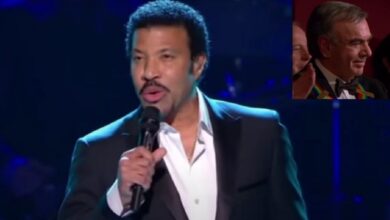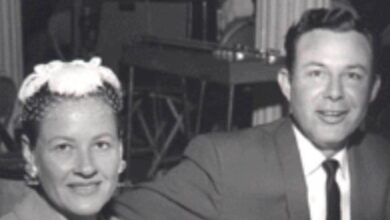Priscilla Expresses That Elvis Sings This Song With Deep Emotion
Elvis Presley, often hailed as the “King of Rock and Roll,” is a name that needs no introduction. Born on January 8, 1935, in Tupelo, Mississippi, he skyrocketed to fame in the mid-1950s with his distinctive fusion of rockabilly, rhythm and blues, and gospel. His captivating stage presence, sultry vocals, and pioneering performances quickly catapulted him to superstardom, earning him a devoted fanbase across the globe.
By the late 1960s, Elvis’s career experienced a revival, largely due to his acclaimed television special, the “68 Comeback Special.” Aired on NBC in December 1968, this special was a crucial turning point for Elvis, highlighting his musical range and reaffirming his place as one of the most legendary entertainers in history.
A highlight of the “68 Comeback Special” was Elvis’s rendition of “If I Can Dream,” written by Walter Earl Brown. The song emerged as a poignant anthem of hope and unity during a turbulent chapter in American history. Amid social unrest and political turmoil, Elvis’s performance resonated powerfully with viewers, embodying a message of optimism and resilience.
Clad in all black and accompanied by a full orchestra and choir, Elvis stepped onto the stage with an undeniable sense of purpose. His passionate and heartfelt vocals conveyed the profound lyrics, capturing the spirit of the times with exceptional depth. “If I can dream of a better land, where all my brothers walk hand in hand, tell me why can’t my dream come true?” he sang, his voice imbued with emotion.
The orchestral backdrop lent a grand atmosphere to the performance, while the choir’s harmonic support emphasized the themes of unity and solidarity. This moment showcased musical brilliance, with Elvis’s dynamic presence and magnetic charisma enthralling the audience from beginning to end.
Beyond its artistic merit, Elvis’s performance of “If I Can Dream” held powerful cultural implications. During an era of deep divisions in America across racial, social, and political lines, he leveraged his platform to advocate for peace, equality, and understanding. His heartfelt delivery acted as a call for unity and hope, resonating with audiences from diverse backgrounds.
In the years since its debut, Elvis’s performance of “If I Can Dream” has become an iconic moment in his remarkable career, symbolizing his enduring legacy as a cultural icon and a beacon of hope and inspiration for future generations. Though Elvis may have exited the stage, his music continues to transcend time, reaching the hearts and souls of millions around the world.





